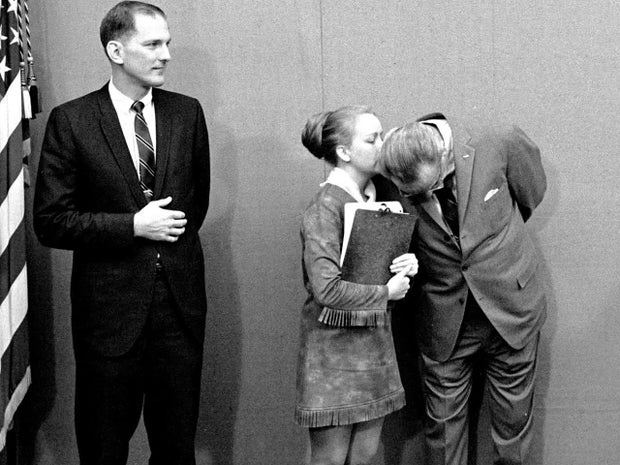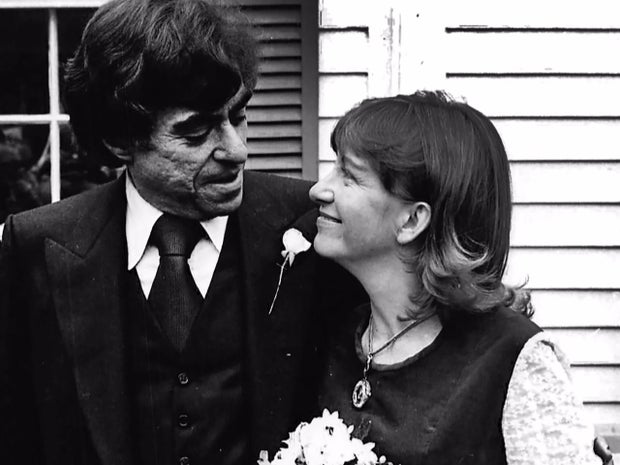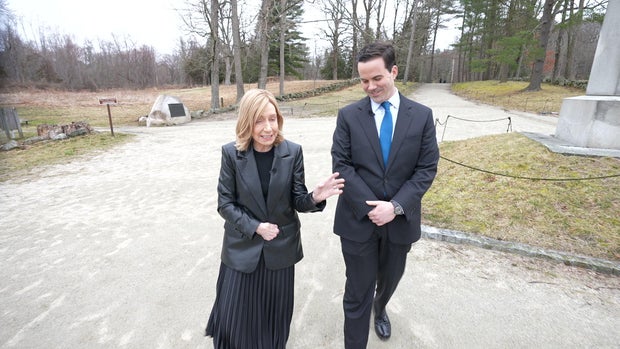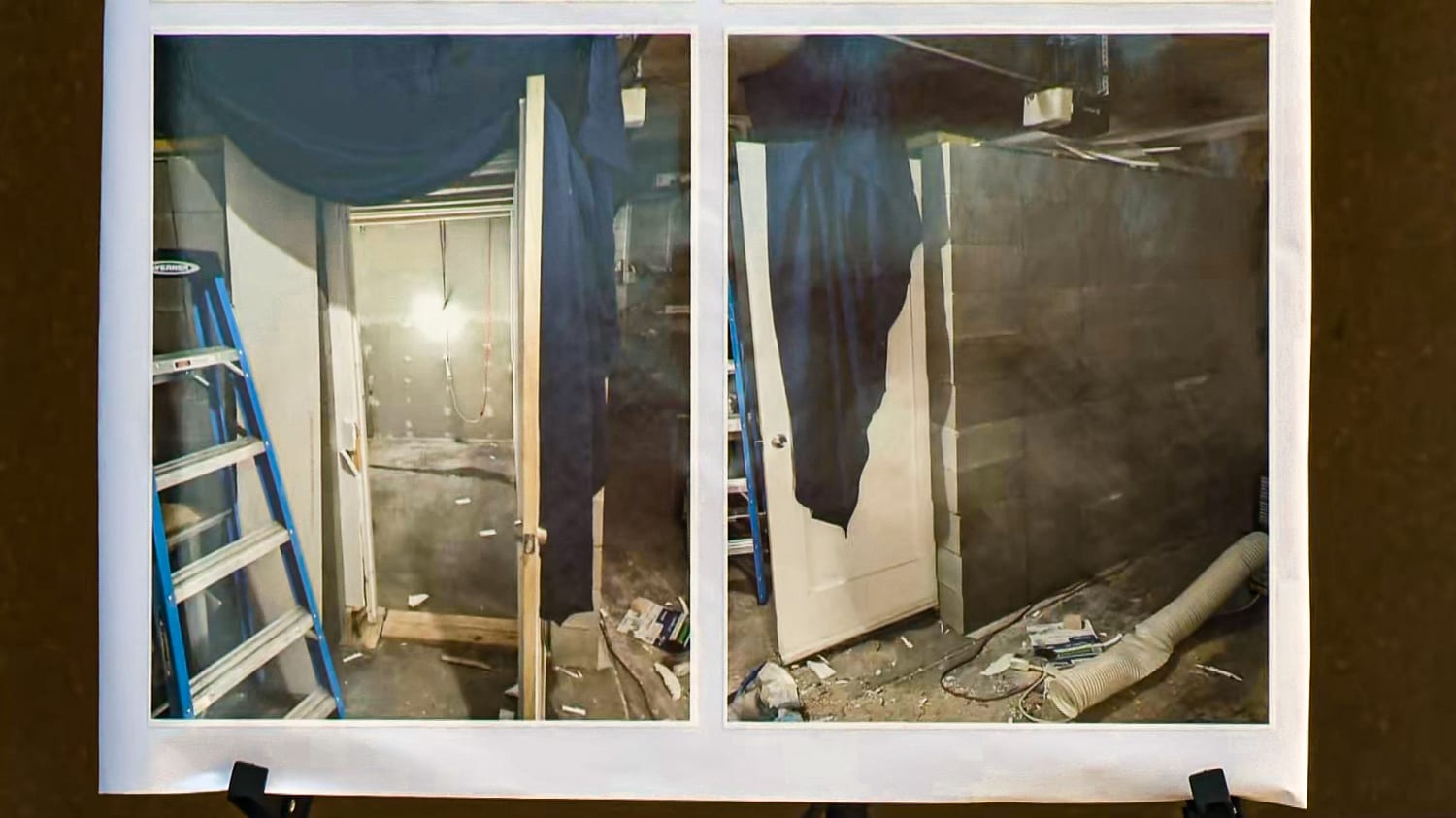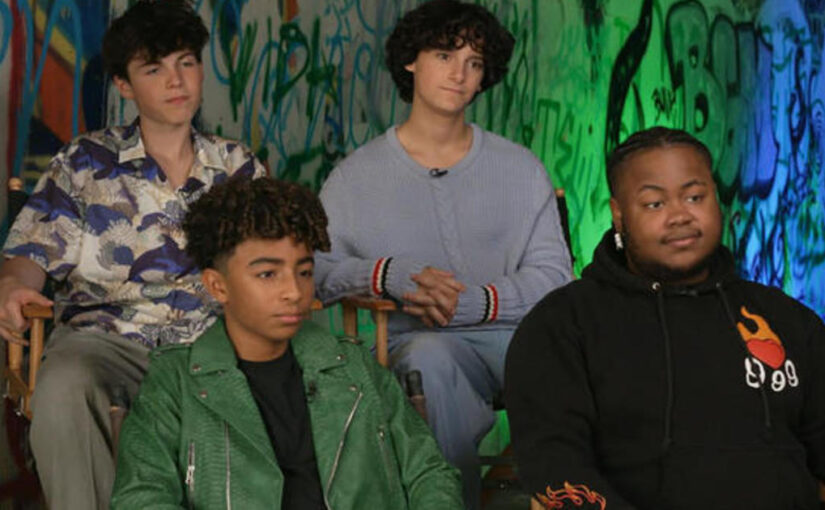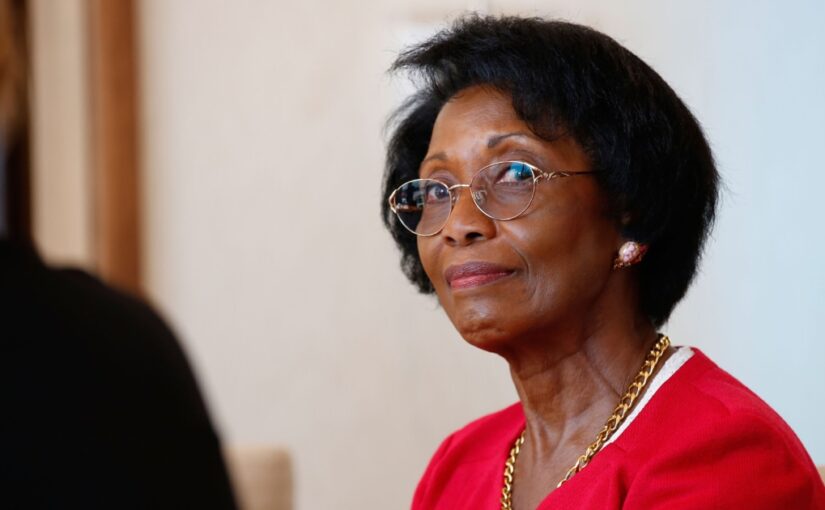The horse has played a central role in the history and mythology of many Native American tribes. The Shoshone, Crow, Blackfeet, Sioux, and other tribes first saw horses when Spaniards brought them to this continent 500 years ago, and have used them in hunting and in battle ever since. Collectively, these tribes call themselves the “Horse Nations.”
As you’re about to see, men and women from those tribes also use horses in a sport that fans have dubbed “America’s original extreme sport.” The tribes call it Indian Relay, its roots date back centuries, and it is one of the most exciting, dangerous, and inspiring things you’re ever likely to see.
We start at the start. In Indian Relay, as many as six thoroughbred racehorses are brought to a start line drawn in the dirt. The horses are bareback; no saddles or stirrups. Their riders wear no protective gear. At the sound of a horn, they leap aboard and tear down the track.
Ken Real Bird: To actually get on a horse bareback and run as fast as you can around is easy.
Bill Whitaker: That’s easy.
Ken Real Bird: Yeah.
Ken Real Bird is a sort of “senior statesman” of Indian Relay, and announces races all over the American West.
Ken Real Bird: These horses are able to run like you wouldn’t believe. But, the hard part comes from jumping off.
60 Minutes
Wait. What? After the riders race one lap around the half-mile track, they all speed into a sort of equine pit row where teammates are waiting with fresh horses for what’s known as the exchange.
Ken Real Bird: So he has to come in, gear down enough, and then angle that horse in.
Ken Real Bird: He gets off and takes one, two, three steps, and he’s onto the back of that horse.
Ken Real Bird: Boom, there he goes.
Ken Real Bird makes that flying leap from one horse to another sound simple. It is not. It’s more like a dangerous, chaotic dance with riders and horses from six teams all trying to do the same thing at the same time in the same space.
Ken Real Bird: You have what they call the setup man.
Ken Real Bird: Their job primarily is to have that horse in the proper position as a rider comes in.
Ken Real Bird: Simultaneously, you have a guy who’s usually a nimble guy on his feet. And he’s gotta catch that horse coming in at 15 miles an hour. That horse, he really doesn’t care about your feelings.
A third member of the “pit crew” is holding a third horse, because the riders must do another leap for another lap.
Bill Whitaker: It’s exciting. But it’s– it’s dangerous too, isn’t it?
Ken Real Bird: Yeah. A lotta injuries. Almost every heat will have some of the guys getting run over.
Ken Real Bird: Can you imagine the front line of Kansas City Chiefs all combined in one and just run over you? That’s what it’s gonna feel like, because that horse is 1,000 pounds.
60 Minutes
Injuries to both horses and humans are part of the sport. The team that best avoids collisions and wins that third lap on a third horse can be forgiven for showing off at the finish.
Ken Real Bird says the roots of modern Indian Relay are in the horse-stealing raids that tribes once staged against White settlers… and each other.
Ken Real Bird: These young mens of the different nations would travel. When it was middle of the night, they would come and take the prize horse and high-tail it back to their home country. They exchanged horses as they were running, ’cause they were being pursued. And so that’s pretty much the origin of the Indian Relay– sport that we know today.
Races in the organized sport were first conducted in the early 1900’s.
Calvin Ghost Bear: When they first started out, the majority of these races were happening in– in– more in– within their own communities, Native communities on their reservations.
Calvin Ghost Bear is a member of the Sioux tribe, and president of an organization called the Horse Nations Indian Relay Council.
Calvin Ghost Bear: What we do with Horse Nations is we basically took a lot of the– the races that were within the tribal nations, brought ’em out into the mainstream. And now, we’re bringing it onto a bigger stage.
60 Minutes
Last summer’s Indian Relay circuit criss-crossed the West and climaxed in Casper, Wyoming with a three-day championship event that celebrated tribal culture in song and drum and dance…and offered more than $100,000 in prize money, thanks to sponsorship from a casino owned by the Northern Arapaho Tribe.
It included a women’s division. It’s two laps and two horses rather than the three-and-three in men’s races, but the athleticism – and danger – are every bit as evident.
There’s also a kids’ Indian Relay, with riders as young as six racing on ponies…. climbing on… and falling off.
Ken Real Bird: Those are the guys that grow up to be the great riders, the great setup men, because they’re all horsemen. And it’s like that in every reservation.
On the Blackfeet Reservation in Montana, we met Ervin Carlson and his son Chazz, who have been competing in Indian Relay for years.
Chazz is one of the most seasoned riders on the summer circuit.
Chazz Racine: For relay, making you good in the sport is just practice, practice, practice, and years of experience.
Another team we followed through the summer circuit is led by 23-year-old Tuesday Washakie from the Shoshone Tribe in Wyoming. Her younger sister Zia is the rider for their women’s team. Both feel a close connection to their horses.
Tuesday Washakie: If you’re having a bad day and it’s just not going your way, you could go out and you can catch your horse and ride ’em, and things– things’ll just seem to be better. (laugh) I think that’s just how it is.
Mason Red Wing feels the same bond and obligation to care for his horses.
Mason Red Wing: It’s really something special because we’re all here for one purpose and it’s– it’s the horse.
Mason hails from the Crow Creek Sioux Reservation in South Dakota.
Mason Red Wing: When I was younger, I– I didn’t know why I used to feel such anger and animosity towards my own people. I– I didn’t want to be Native American. And– the horse helped me– you know, reconnect with my culture and be proud of who I am and proud of where I’m from.
Bill Whitaker: Why were you feeling, you didn’t like being a Native American?
Mason Red Wing: Growing up, where I’m from on the reservation, you– you see a lot of things that make you not proud to be where I’m from–
Bill Whitaker: Like what?
Mason Red Wing: Alcoholism, drug addiction– drug abuse– suicide. Suicide rates on the reservation are four or five times the national average. My own father was, succumbed to alcoholism. So it really hit home.
60 Minutes
Bill Whitaker: You said the horse saved your life?
Mason Red Wing: Yup. Yes, sir. Essentially.
Bill Whitaker: You think it does that for a lot of young Native American kids?
Mason Red Wing: I think so. There’s a lotta kids out there that are just– that are just looking for– for that doorway.
There’s little glamor in Indian Relay, and lots of hard work. Every team is self-funded, and nearly everyone has a “day job” to help pay the bills. But the sport is on the rise; prize money is increasing, and 67 teams competed in last summer’s championships.
The quality of horses is rising too… teams go to major racetracks like Churchill Downs, home of the Kentucky Derby, to buy sprinters well-suited to Indian Relay.
Calvin Ghost Bear: Kentucky. That would be the the ultimate. A demonstration race before the derby, that would be– that would be my goal.
Each team competed in one heat each day of the championships. Their cumulative time from the first two days determined whether they made the final championship heat on Sunday.
Bill Whitaker: Is the race usually won or lost in the exchange?
Ken Real Bird: Yeah. It’s like, a relay team but in track and field.
But in Indian Relay, exchanges involve six riders, 18 horses, 18 other humans, and a cloud of dust.
Bill Whitaker: From what I’ve seen, it’s, like–
Tuesday Washakie: Chaos.
Bill Whitaker: Chaos (laugh)
60 Minutes
Tuesday Washakie’s women’s team made the championship heat in Casper, and her sister Zia had a clean exchange in that race. They finished a close second.
Bill Whitaker: I don’t know, do you get demoralized, or does it make, make you more determined?
Tuesday Washakie: That makes me more determined, man. I’ll be out here mad as hell, but I shouldn’t be.
The first-place women’s relay team came from the Colville Reservation in Washington state, with rider Talliyah Timentwa.
Bill Whitaker: Is this your first championship?
Talliyah Timentwa: No. I actually won the first one in Walla Walla.
Bill Whitaker: All right.
Talliyah Timentwa: Yeah, when I was 13.
Bill Whitaker: And how old are you now?
Talliyah Timentwa: Seventeen.
Bill Whitaker: Seventeen?
Talliyah Timentwa: Yeah.
Bill Whitaker: Wow. Are you going to do it again next year?
Talliyah Timentwa: Yeah. We’re– gonna do it as long as I can. I love this game.
The day before, we had watched Talliyah win a heat with her arms raised in a pose of triumph and strength.
Ken Real Bird: It is how we connect to the warriors of the past, the warriors of 200 years ago. It’s that same bloodline of that warrior that is wo– coursing through their blood.
Over three days of heats we watched Mason Red Wing and his team go from dirt-pounding frustration when an exchange went wrong to exultation as another went right.
Ken Real Bird: But he came back
Mason Red Wing: ‘Cause we’re always searching for that perfect run.
They didn’t quite find it in the finals.
The team that did was the one we’d first met months earlier on the Blackfeet Reservation: Ervin Carlson and his son Chazz.
Bill Whitaker: So we’ve been following you, like, all summer. Like, this is the culmination of everything you’ve done all– all year. So does this give you bragging rights for a year or what?
Chazz Racine and Ervin Carlson: Oh yeah. Oh yeah. Oh yeah.
As a tribal elder sang a traditional praise song in honor of their victory… and organizers presented them with a check for $20,000, we noticed a group of kids at the rail, on their ponies, watching intently.
Mason Red Wing: What the horse done for me I know the horse can do that for everyone 1,000 times over. And I’m, I’m a firm believer in it. I, I know for a fact it can– it can bring our young men and our young women back.
Produced by Rome Hartman. Associate producers: Sara Kuzmarov and Kathleen Seccombe. Broadcast associate: Mariah B. Campbell. Edited by Sean Kelly.








